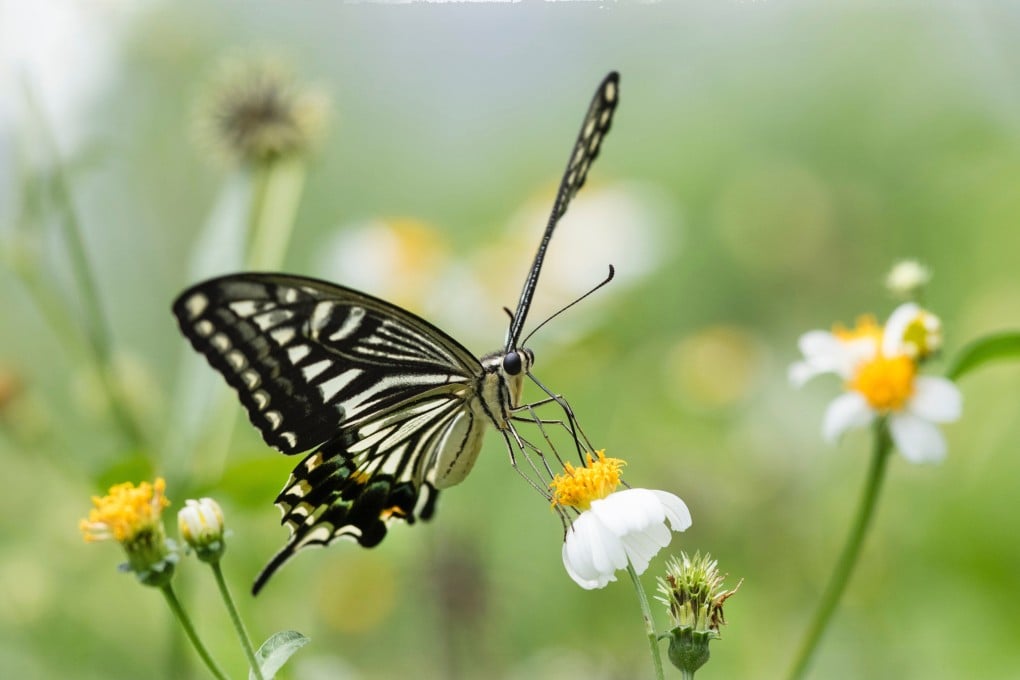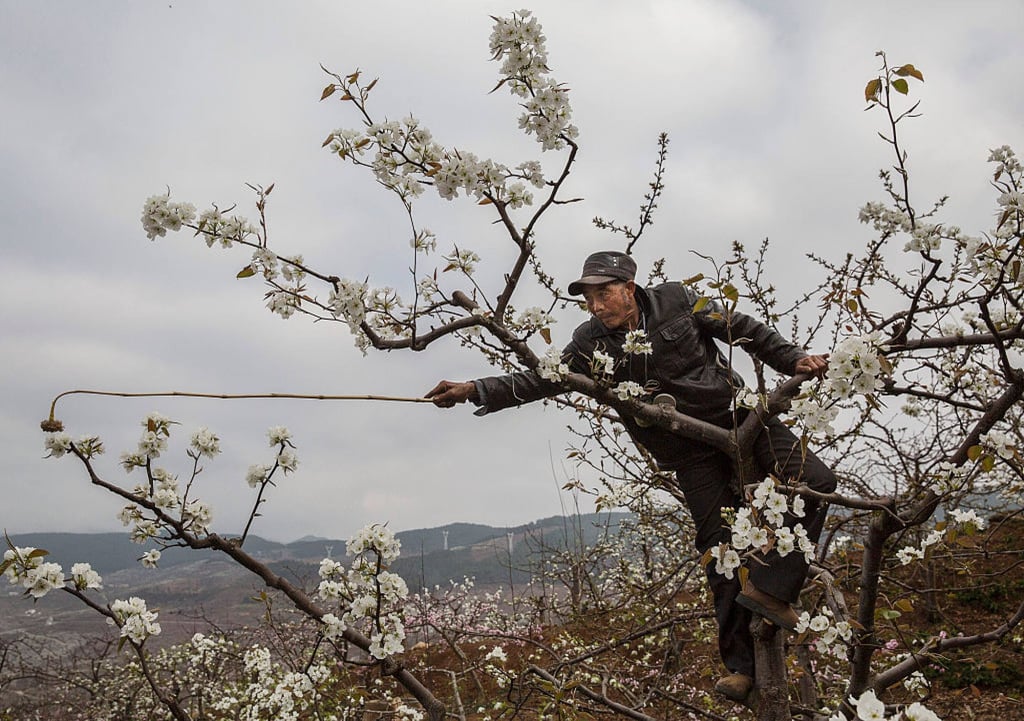How wipeout of insects – butterflies, flies, bees – risks food security, robs our world of beauty and threatens all life on Earth
- Pesticides and habitat destruction eradicated insects in Sichuan, China, forcing farm workers to climb fruit trees and pollinate flowers by hand, one by one
- It’s an example of the unforeseen consequences of human actions, and a warning of the risks to the food chain, highlighted in Oliver Milman’s The Insect Crisis

The Insect Crisis: The Fall of the Tiny Empires That Run the World By Oliver Milman, pub. W.W. Norton & Co
If the downside to a world without bugs could be summed up in an image, it might be a picture of Sichuan’s orchard workers behaving like bees.
High on ladders or clinging to branches, farm workers in one of China’s premier apple- and pear-growing regions use long wands with feathery ends to dab pollen from a can into one fruit tree blossom after another.
Years ago, the bees that once did the job were all but wiped out by pesticide use and vanishing habitat. Now, legions of workers – improbable bee substitutes – work flower by flower, tree by tree, to pollinate the region’s fruit crop.

“It’s incredibly striking,” says Oliver Milman, “and obviously ominous for the future.”